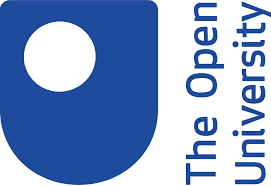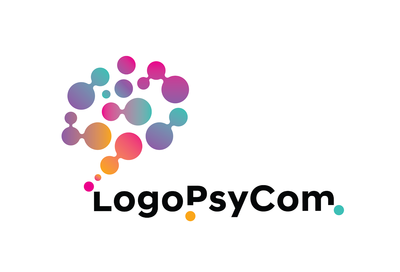PARTNERS OF THE VISITOR PROJECT
The VISITOR project is developed by five European organizations from France, Greece, the United Kingdom and Belgium.

INTERACTIVE 4D is a French SME specialized in the design and development of serious games and gamified educational tools since 2010. Interactive 4D designs and develops serious games and gamified e-learning tools to meet the growing needs in the fields of:
- Professional training (learning games, LMS plateforms and gamified e-learning modules).
- Smart cities and smart territories that want to promote their cultural and natural heritage and raise awareness among citizens towards environmental and security issues.
- E-health (health assessment tools, telemedicine, health education of patients, training of healthcare professionals).
INTERACTIVE 4D is the cordinator of the VISITOR project and is responsible for the design and the development of the gamification platform which offers a training program based on educational content designed by the project partners.
Interactive 4D is also in charge of the design of the website and its periodic updates.
Hellenic Open University (HOU) (EAP, Elleniko Anichto Panepistimio)
Hellenic Open University (HOU) is a Public University founded in 1992. Its prime mission is to offer university level education using solely distance learning methodologies and to develop the appropriate material and teaching methods. An equally important aim is the promotion of scientific and applied research in the field of distance and lifelong learning. HOU offers formal and informal adult education using distance learning in both undergraduate and postgraduate levels, leading to BSc, MSc and PhD degrees as well as to Lifelong Learning certificates, currently serving more than 40000 active students and more than 2500 permanent staff and adjunct teaching members.
HOU uses the distance education methodology complemented with specially developed learning material and supported by a modern technology infrastructure. HOU consists of four Schools (Science and Technology, Humanities, Social Sciences, and Applied Arts) and integrates the Educational Content, Methodology and Technology Laboratory (e-CoMeT Lab) as an independent Unit responsible for supervising the development of educational content and applying appropriate methodologies in HOU courses.
The e-CoMeT Lab has been founded to support HOU in applying educational, methodological and technological innovation in distance learning and digital educational content development. The e-CoMeT Lab aims at monitoring societal and industrial needs in competences, skills and jobs, certifying the quality of the educational methodology and material, developing innovation in distance learning and digital educational material, applying advanced ICT in educational practice, and in general, promoting scientific research and transfer of innovation on behalf of HOU. The e-CoMeT Lab applies to its premises activities according to HOU Quality Management System that conform to the requirements of the standard ELOT EN ISO 9001:2015.


The Open University (OU)
The Open University (OU) is a world leader in modern distance learning and has educated more than 2.09 million people worldwide since its launch in 1969. The OU is a pioneer of teaching and learning methods that enable people to achieve their career and life goals studying flexibly at times and places that suit them. It is the largest academic institution in the UK and is one of the largest Universities in Europe with circa 174,898 students. The OU ranked first for student satisfaction with assessment and feedback at 87% in the 2019 National Student’s Survey.
The OU operates with the following faculties: Arts & Social Sciences (FASS); Business and Law (FBL); Science, Technology, Engineering and Mathematics (STEM); and Wellbeing, Education, Languages and Sport (WELS). The University continues to celebrate diversity and challenge under-representation. Of our current students, 14% declare a disability, 1 in 12 declares a mental health issue, 23% are from the most deprived areas of the UK, 1,800 are studying in secure environments and 1,400 are active members of the armed forces.
The OU enjoys an international reputation for the quality of its research in many fields. In the OU’s institution-wide Research Enterprise and Scholarship Unit there is very considerable academic, managerial and administrative experience and expertise leading significant projects both on a national and international scale. The Institute of Educational Technology (IET) at the OU connects innovation and expertise in learning and teaching, using this collective power to change the face of education. IET’s work is at the heart of the University’s mission to be a world leader in the design, content and delivery of supported open and distance learning through the innovative use of technology. IET has five main research programmes: learning analytics and learning design; learning futures; learning in an open world; professional and digital learning; and performance augmentation.
IDEC
IDEC is a training consulting company located in Piraeus, Greece. Its activities consist of training, management consulting, quality assurance, evaluation and development of ICT solutions for both the private and public sectors. Clients of IDEC are both SMEs and the bigger Greek companies of a wide variety of sectors. It co-operates with more than 800 institutes all through Europe and with about 300 experts on specific fields.
IDEC has extensive experience in European projects, either as coordinator or as a partner from different European programs and Initiatives. IDEC has consulting experience in developing quality management systems in Greek training centres and has been accredited as a lifelong learning center. It organizes in-service training courses for teachers and trainers, study visits and informal learning activities for students in initial education and training and provides training courses and work placements for students in vocational training and people in labor market.
The main areas of expertise are management consulting, business plans, entrepreneurship, SMEs, quality management, certification, design of training contents based on ECVET, software and multimedia development, internet applications, distance learning, e-business, and e-commerce.
In the field of Lifelong learning, IDEC has experience in European policies regarding LLL and in particular EQF, ECVET, Europass, EQAVET, validation of non-formal and informal learning and in national reforms of education and training systems. It has successfully undertaken the contract with CEDEFOP “Europass, ECVET and EQF for documentation, validation, and certification of learning outcomes”.

Logopsycom
Logopsycom was initially created as a company specialised in projects for skills development, professional training, revalidation and inclusion for young people with disabilities and learning disorders, especially “Dys” youngsters (Dyspraxia, Dysphasia, Dyslexia, etc.) also called Specific Learning Disorders (SLD).
During several years spent accompanying schools, VET centres, educational organisations, youngsters and parents, Logopsycom created or used alternative methods or tools (digital or not) and developed its field of expertise to be an education innovation centre.
This background on learning disorders made Logopsycom take a special interest and acquire expertise on several topics: reading, writing, mathematics, European cultural heritage, cultural learning and technology for education. Therefore, Logopsycom now offers a broad range of education support and creation going from private tutorship to online courses with its partners. In order to be more effective for its audience, Logopsycom has developed in the last years an expertise in innovative ICT. Several of its EU projects, such as Bibliodos, use technology and culture to increase the accessibility of educational content for students with SLD.
Logopsycom works directly with education institutions in Belgium and in Europe and with youngsters, trainers and professionals in its hometown of Mons and also, based on collaboration, in Brussels and sometimes in Paris. During all these activities, Logopsycom continues to pay special attention to the accessibility and inclusiveness of the material it produces or the activity it organizes. To do that, Logopsycom bases itself on a team of specialists, in house or frequent collaborators: researchers, teachers and trainers, but also speech therapists and adaptation specialists.

